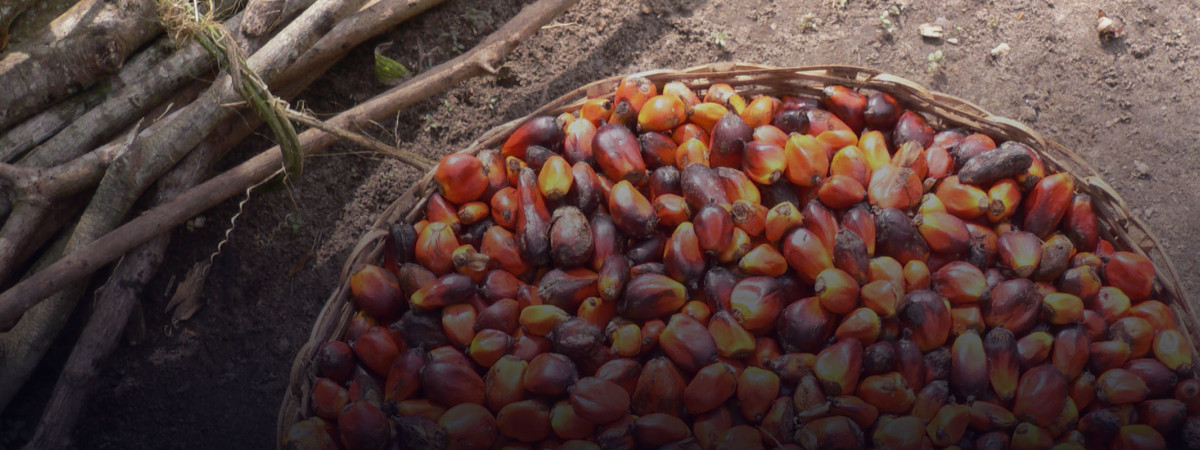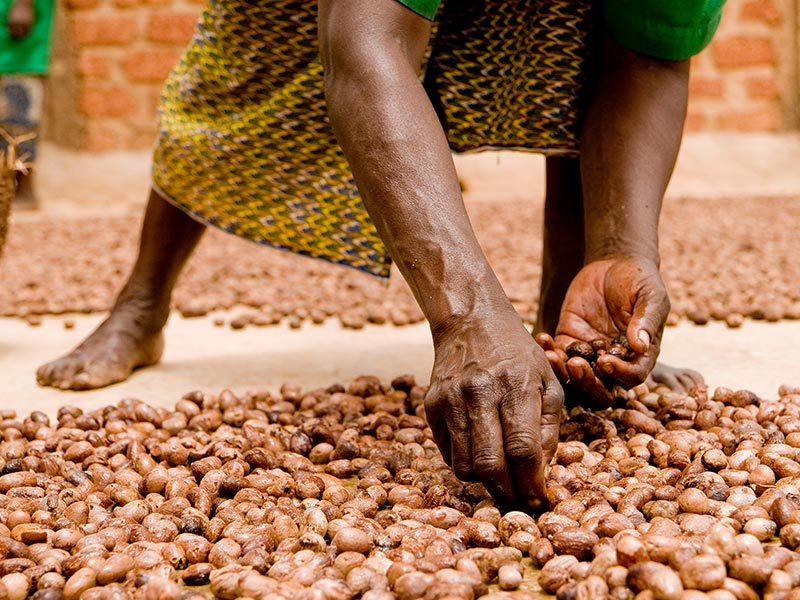
"Palm Oil Production" by oneVillage Initiative is licensed under CC BY-SA 2.0
Authors
-
Thibault Gravier
Former Director, BSR
-
Edwina McKechnie
Former Associate Director, BSR
The COVID-19 pandemic, its economic impacts—particularly on the supply chain—have led to huge global disruption over the past year, affecting the way we live, work, and socialize. Even amid all the upheaval, one thing that has not faltered, however, is global demand for the products that rely on palm derivatives. Though many people are not aware, it is in the soap that we wash our hands with, the cleaning solutions that keep us safe and healthy, and the cosmetic and home products that bring joy to quarantine. Palm derivatives continue to be an essential component in many facets in our lives.
The social and environmental challenges of palm production are well known. However, the complexities of the derivatives supply chain obscure visibility of practices at source. Companies seeking to accelerate compliance with deforestation-free and responsible supply chain principles are faced with resource-intensive supply mapping exercises, often in duplication with other downstream players and prohibitive for smaller companies. Transparency to source is therefore limited, and the significant collective influence of the palm derivatives sector is yet to be fully utilized.
It has been just over ten months since Action for Sustainable Derivatives (ASD), a sector-wide collaboration for users of palm and palm kernel oil derivatives in the beauty, personal and health care, and oleochemical industries, was launched to galvanize a collective voice of influence for responsible palm production and to operationalize collective tools for change. Our vision is to achieve and promote palm derivatives sourcing that is free from deforestation, respects human rights, and supports local livelihoods.
ASD is proud to share our first Annual Update on Progress, demonstrating the rapid progress that has been made even in the context of global upheaval. Since its inception, ASD has facilitated the sharing of information, data, and solutions to accelerate transformation of the palm derivatives sector among its members. Moreover, ASD also acts as an operational platform for transparency, risk prioritization, and on-the-ground impact.
The resulting proof points speak to our founding collaborative and impact-oriented approach:
- Conducted individual member company and collective group supply chain mapping for 18 member companies, covering 450,000 tons of palm-based materials and over 700 ingredient types
- Mapped derivatives supply chain to mills of origin for 81 percent of palm volumes
- Leveraged existing environmental and social risk data to prioritize production hotspots and supply chain players in the collective supply chain, which allows for engagement to improve production practices and secure supply of responsible palm derivatives to uphold No Deforestation, No Peat, No Exploitation commitments of downstream users
- Developed an impact-oriented strategy to focus collective resources in support of responsible production practices and relevant conservation, restoration, and livelihood initiatives
We are confident that our collective transparency model holds huge potential to drive alignment and efficiencies in the palm derivatives sector. By bringing a collective derivatives voice to the issues, ASD aims to maximize opportunities for impact by co-building and co-implementing solutions with wider stakeholders and initiatives in the sustainable palm space.
Ultimately, our goals rely on comprehensive sector-level participation and industry collaboration to scale impact. ASD invites new companies to join and interested stakeholders to engage and work together in continuing to drive positive change in this sector.
Topics
Collaborative Initiatives
Let’s talk about how BSR can help you to transform your business and achieve your sustainability goals.







